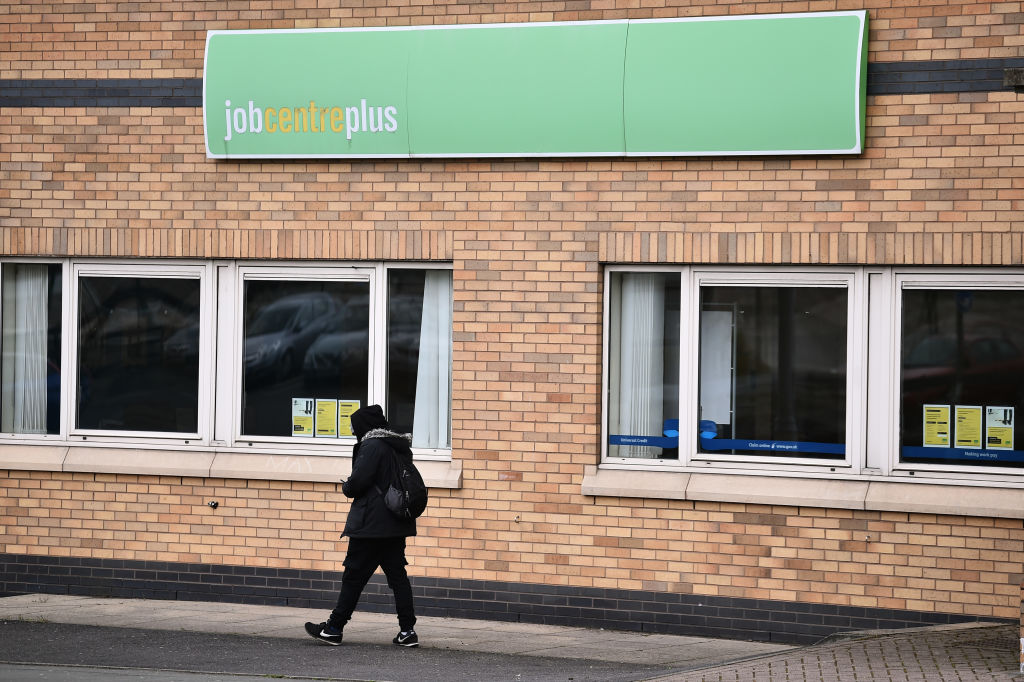One of the first casualties of the Covid pandemic was the millennial left’s defining project of a Universal Basic Income. Once it became clear just how expensive it is for the state to pay people not to work, as in Rishi Sunak’s lockdown income guarantee, this quasi-socialist project died a well-deserved death. But not everyone is prepared to let it lie.
I’m afraid this betrays the fundamental problem with SNP economics
The former Scottish First Minister, Nicola Sturgeon, had been a supporter of UBI and commissioned an ‘expert’ group in 2021 to revive it under a new name: the Minimum Income Guarantee, or MIG. That group was largely composed of charities and academics. Unsurprisingly, their report today calls for a MIG that is marginally less barking than UBI. These experts advocate a minimum income for all of £11,500 for a single person, rising to £28,000 for a couple or single parent with one child. This would not, of course, remove entitlement to other welfare payments, including child benefit, disability benefit, or housing benefit.
‘A Minimum Income Guarantee could be transformative,’ said the expert group chair, Russell Gunson, of the Robertson Trust charity, ‘putting in place a universal guarantee that’s there for everyone in Scotland.’
There’s just one problem with this noble endeavour: it is almost laughably unaffordable. The Scottish government’s own assessment put the cost at nearly £6 billion a year. The Scottish government is already committed to spending £2 billion more on welfare annually than under the welfare arrangements applying to the rest of the UK. This is in large part a result of the £27 per week Scottish Child Payment.
Repeated reports from the Scottish Fiscal Commission and Audit Scotland have been warning that Scottish finances are already ‘unsustainable’. Yet the Scottish government is also committed to restoring most of the Winter Fuel Payment and scrapping the two-child benefit cap, which will add even more to the Caledonian welfare bill.
Introducing the Minimum Income Guarantee as proposed by the expert group would mean increasing income tax to levels that would horrify even the most radical Scandinavian finance minister. Scotland’s 2.5 million income taxpayers would be liable to pay an extra £2,400 each per year. Since income tax is progressive, it would mean jacking up higher-rate taxpayers by a multiple of that figure. Scottish taxpayers on £50,000 a year already pay £1,500 a year extra for the privilege of living in Scotland. Asking them to pay another £3,000 or more would be politically inconceivable.
And there is every reason to suspect that the cost could be greater than £6 billion. The independent Fraser of Allander Institute estimated the cost of an £11,500 Basic income at £58 billion a year. And while the wealthy would not receive a MIG, it is still an open-ended liability which no Scottish government could responsibly incur.
So why has this ‘expert’ group proposed something so patently ridiculous? And why has the Social Security Secretary, Shirley-Anne Somerville, ‘welcomed’ a report that should clearly have been filed under bin the moment it crossed her desk? If you ask anti-poverty campaigners how they would pay for it, they invariably say, ‘tax the rich’. But Humza Yousaf tried that with the new Scottish £75,000 tax bands. The Scottish Fiscal Commission expected this to raise only around £82 million a year – about 0.01 per cent of the MIG. In fact it yielded much less.
I’m afraid this betrays the fundamental problem with SNP economics. It is based on a belief that there is some vast treasury of untaxed wealth that can be tapped if only there is the will to do so. Poverty campaigners talk fancifully of wealth taxes which, even if the Scottish government had the legislative power to levy them, would simply lead to an exodus of businesses and higher-rate taxpayers, as has been the case with Chancellor Rachel Reeves’s attempts to tax non-doms. Any credible wealth tax, like the Scottish Green party’s idea of a 1 per cent annual tax on the top 10 per cent of wealth holders, would mean confiscatory levies on pension funds and the notional asset values of houses. This is political madness.
These delusions are born of the student union debating chambers where most Scottish politicians cut their intellectual teeth. They never grew up. Their fiscal infantilism is underpinned by the fact that most Scottish spending comes automatically in the form of subsidies from the relatively generous Barnett Formula. Perhaps SNP politicians should be given what they apparently wish for: fiscal autonomy. Make the Scottish government raise every penny it spends. Ministers might then set up an expert group on how to live within your means.








Comments